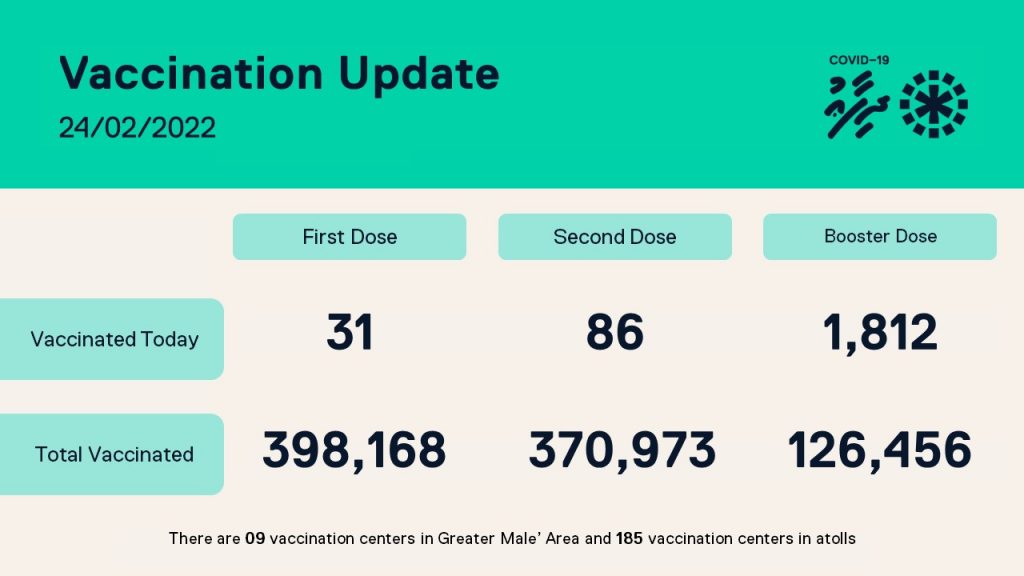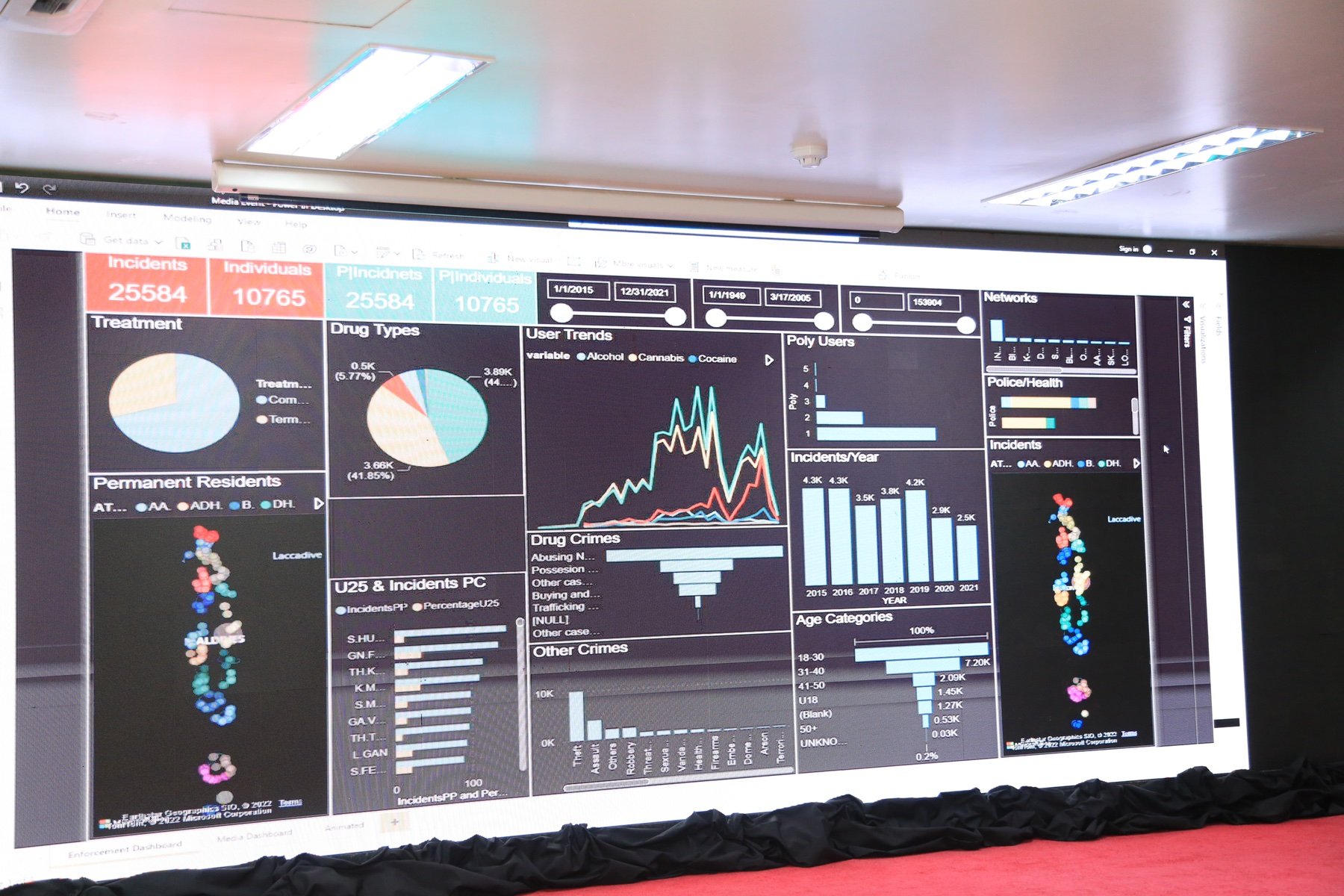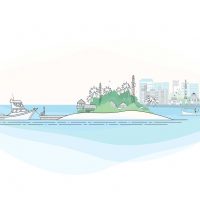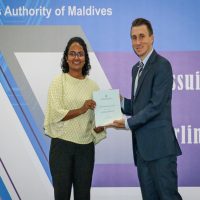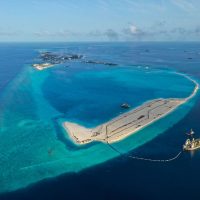1. Police Briefs Media On Entrenched Substance Abuse
The police invited the media for an extensive information session on the prevalence of substance abuse, new trends and the challenges faced in tackling “party drugs”. Officers gave presentations and stalls were set up to demonstrate various aspects of the drugs landscape.
Heroin and cannabis have been predominant since the early 90s. But a party subculture emerged over the past decade among younger generations that most commonly consume ecstasy, MDMA, methamphetamines, cocaine and LSD – a growing epidemic fueled by a lucrative trafficking business. The newer drugs pose dangers of overdose and psychological problems, the police warned.
“A lot more [than reported in the media] are taken to hospitals because of overdose. At hospitals, they have to handle cases of overdose almost daily,” a police doctor was quoted as saying.
Key takeaways:
- 21 cases of overdose officially reported since 2019
- Drugs are smuggled in postal packages
- Pills are concealed in the sides of empty boxes or hidden in items such as CDs and children’s toys
- Orders are placed on “hard to trace” platforms on the dark web
- 13,000 packages arrived daily pre-Covid, down to 5,000 a day at present
- The postal service is “ill-equipped” to monitor and screen large quantities
- Fake national ID cards are often used and it is “easy to forge or frame others”
- Points of origin include Bangladesh, Belgium, Malaysia, Turkey, Greece, Nederlands, Nigeria, Germany, UK, and Thailand
- Street prices range from MVR800 to MVR2,000 (US$130) per pill
- Profit margins are much higher than non-synthetic drugs
- Drugs are promoted to youth on social media groups
- Methamphetamine use has been found among foreign workers
- Maldives is used as a cocaine smuggling transit point
- Since 2016, the volume of some types of drugs smuggled has increased by 300 percent
- 487kg of drugs confiscated in 2021, up from 105kg in 2018
- The rest of the country is increasingly reflecting the situation in Malé
The police also briefed the media about “drug cafés” in Malé that serve heroin addicts:
- 1,118 Maldivians regularly frequent the dens
- They include 65 women, 305 people dropped from treatment, and 249 people ordered to be sent to a rehabilitation centre
- 56 people older than 50
- 14 minors under 18
- 134 Bangladeshis, three Indians and two Sri Lankans among known foreign customers
- Of the total, 63 Maldivians and four Bangladeshis are homeless
- 46 places used as drug dens locked up
- Warnings issued and charges sought against homeowners in some cases
- Three groups have been breaking locks and reopening despite repeated raids and metal bars welded to block entry
- In one case, a homeowner was assaulted after reporting the use of his residence
Foreign Involvement: 146 expatriates were involved in major trafficking cases between 2015 and 2021. There are 325 expatriates who sell alcohol.
Case In Point: In 2020, the police arrested alleged drug kingpin Arshad Khalid and seven others over 9kg of drugs smuggled on a boat. More than MVR4.6 million (US$298,300) was seized from 10 residences connected to his network. More than MVR167,000 was in Arshad’s wallet when he was taken into custody. Packing devices and cash counters were found in the apartments, one of which bore the suspect’s fingerprint. But he was acquitted by the criminal court. Two out of eight defendants were found guilty. The same network is suspected of smuggling 119kg three months after their release.
Money Laundering: Gangs have been buying legitimate businesses such as guesthouses and restaurants.
Hostages: Local groups send a guarantor to suppliers in Afghanistan or Pakistan. In one instance, a Maldivian was held after the Iranian smuggling vessel was seized by the police. The suppliers demanded payment for his release.
Related: A 57-year-old Maldivian woman was arrested in India on drug smuggling charges.
2. Covid Restrictions Lifted As Omicron Wave Recedes
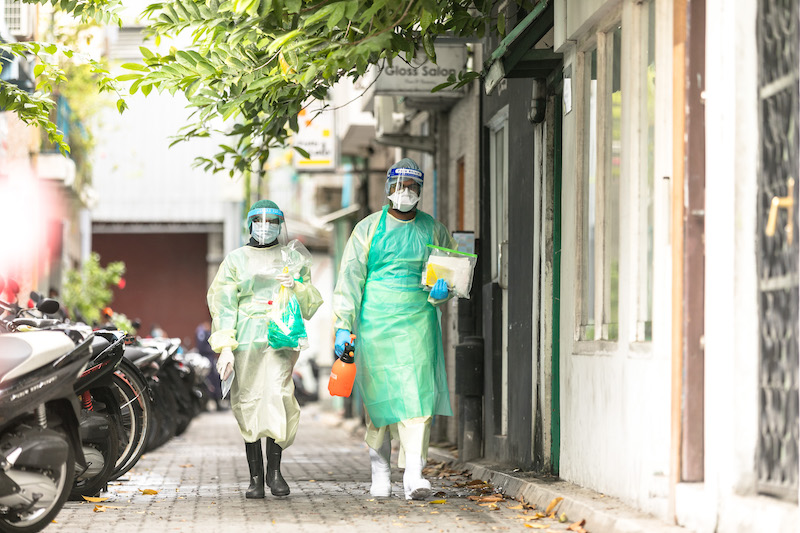
The Health Protection Agency lifted a requirement for a PCR test for travel between the capital and other islands. Limits on gatherings and events were removed and spectators were allowed to return for sports tournaments.
Restrictions were reinstated in early January amid a surge driven by the highly contagious Omicron variant. After peaking at more than 2,700 cases on 31 January, total cases stood at 507 on Friday (25 February). Reflecting a policy shift in many countries to treating the coronavirus more like the seasonal flu, the HPA told the press that the new Covid-19 mitigation policy was “learning to live with the virus.”
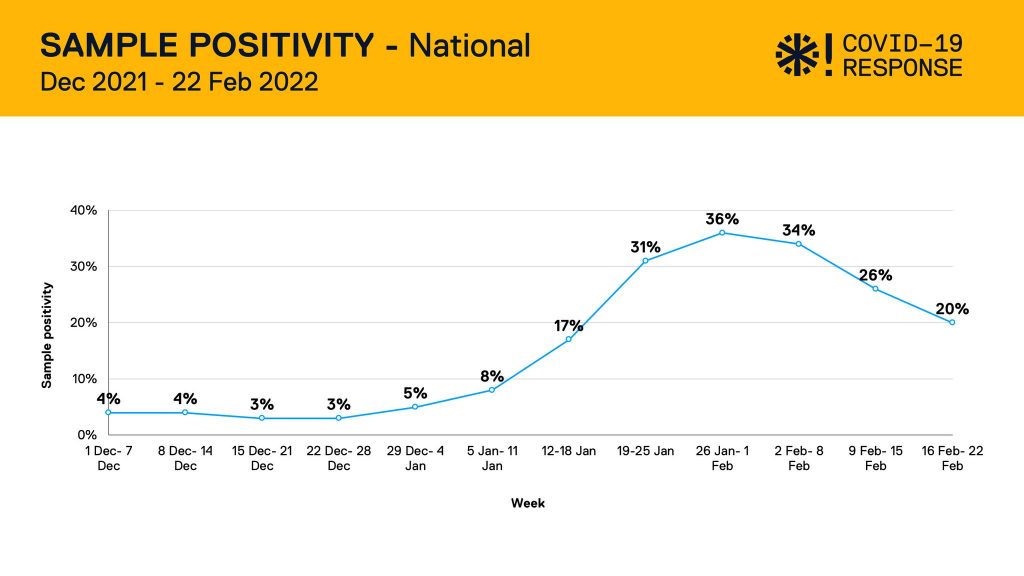
The positivity rate in Malé was down to five percent on Wednesday. But the number of tests done fell during the week. Unlike the Delta wave that was largely concentrated in the capital, the new variant spread across the country.
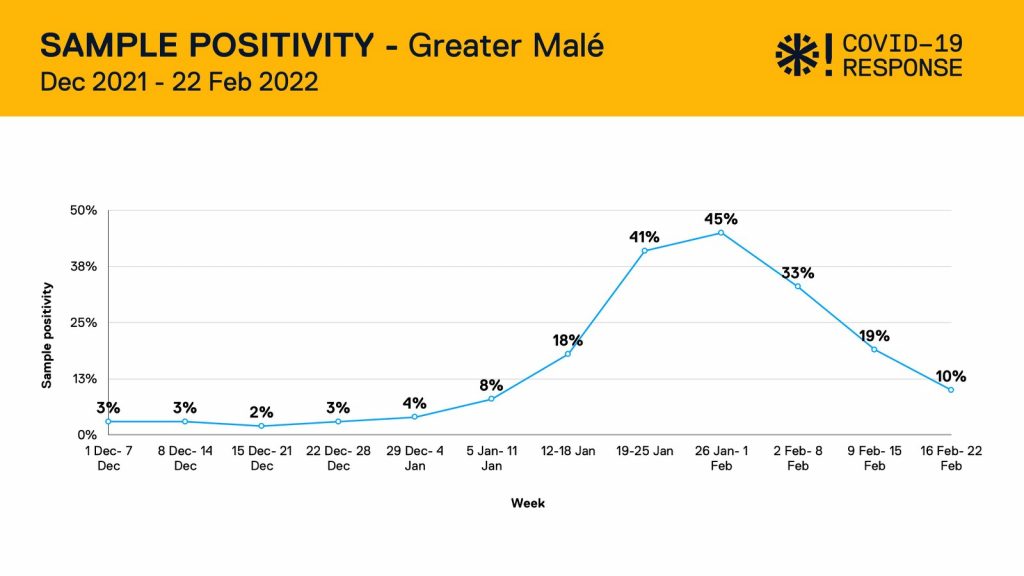
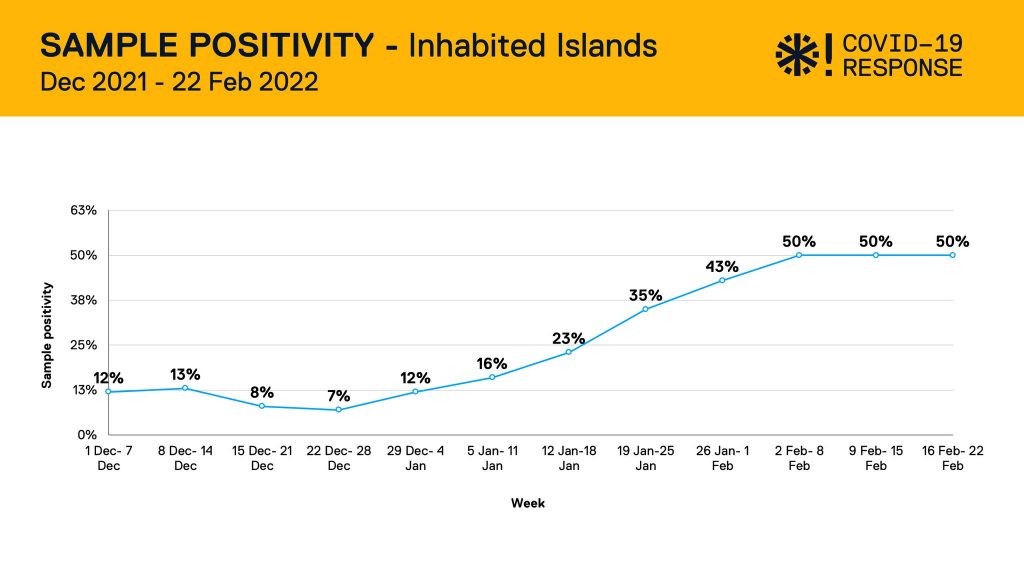
Covid trajectory: Despite the successful rollout of a nationwide vaccination programme in February last year, the worst outbreak and highest death toll were recorded in May 2021, accounting for nearly half of all Covid-19 fatalities and prompting a partial lockdown of Malé City. Until the Omicron wave, the situation largely remained stable after the Delta-driven record surge.
Vaccination status: Covid vaccine take-up slowed to a crawl after 80 percent of the eligible population above 12 years of age were fully vaccinated by late 2021. Administration of the Pfizer booster dose to all residents over 18 started on 15 January.
